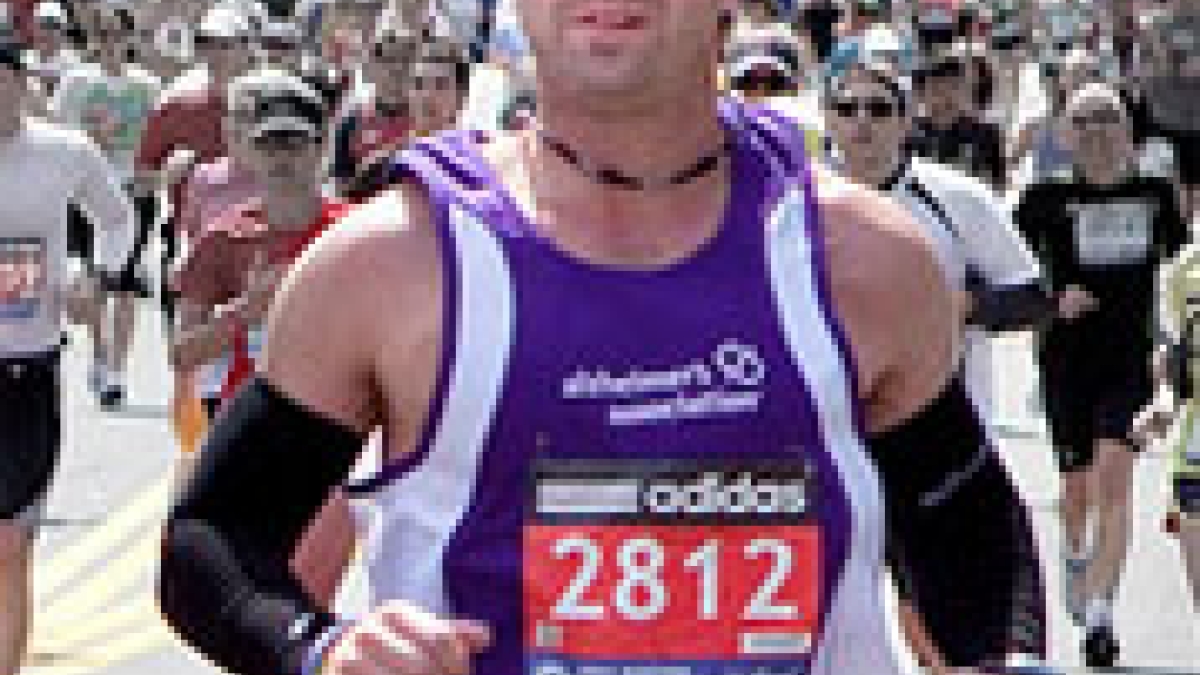Running for a cure: Researcher raises money for Alzheimer's research

When ASU Biodesign Institute researcher Jason Kramer is not focused on health research, he’s likely improving his own health by running. Kramer ran in the 115th Boston Marathon for the seventh year this spring to earn money for the Alzheimer’s Association Massachusetts and New Hampshire Chapter. He and 29 members of the Run for the Memory Team earned more than $160,000 for the cause this year.
“My grandfather passed away from Alzheimer’s disease in 1999. At the time, I worked on the Human Genome Project, and it was thought that the disease was mostly genetically inherited,” said Kramer. “I hadn’t really thought about that link before, but his death really made me think about how the disease could affect me.”
Kramer, who works in the Biodesign Institute’s Center for Personalized Diagnostics, relocated to Phoenix from Boston in 2009. The center develops diagnostic tools that pinpoint the underlying cause of specific diseases based on individual patient profiles, with a goal of improved health care at reduced cost.
“Living in Arizona has made training for Boston much easier as the training cycle starts in late December. I don’t have to dig out three layers of clothes like I did when I trained in Boston,” said Kramer. “Summers are a bit trickier here, but I’ve learned when to start my early morning runs and to carry a lot of water.”
Despite the move, Kramer anticipates the 26.2-mile race each year. “I love hearing spectators shout ‘Go Alzheimer’s!’ and when you make a left on Hereford and right on Boylston, there’s nothing like it – nothing. Thousands of people line the street: all cheering. I get goose bumps just thinking about it.”
In addition to running, each team member raises money for the Alzheimer’s Association. Such efforts since 2002 have raised more than $1.4 million. The money goes toward eliminating Alzheimer's disease through the advancement of research, providing enhancedcare and support for all affected, and to reduce the risk of dementia through the promotion of brain health.
The Boston Marathon is the world’s oldest annual marathon and ranks as one of the world’s most prestigious road racing events. Runners can run the marathon based on achieving a qualifying time or by raising money for a charity. Kramer ran his best qualifying time in 2009 at three hours and 12 minutes. This year, he ran with a teammate to help her achieve a qualifying time. Although his friend did notmake her time due to an injury, she and Kramer completed the race together.
“In a marathon, you are constantly battling your thoughts, emotions, body and the clock,” said Kramer. He runs at least five days a week and competes in 10 or more races each year. He plans to run the Boston Marathon three more times before taking a break.